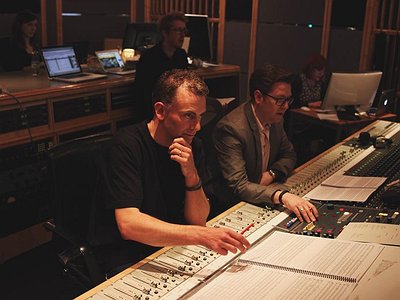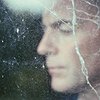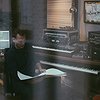Part 3
What's your perspective on the relationship between music and other forms of art – painting, video art and cinema, for example – and for you and your work, how does music relate to other senses than hearing alone?
A director once said to me that hearing my music is like walking into a building you know and discovering a whole floor that you never knew existed. I love it when music can inspire or provoke any reaction in me. The same goes for all art. I have been commissioned to compose a piece of music based on a painting by Picasso for The National Portrait Gallery in London. It is going to be a fascinating journey for me to try to achieve this in a composition. I was walking around the Tate Modern yesterday and thinking about how different sculptures provoked different feelings in me and what would I do to achieve the same reaction in music. It is a fascinating subject.
I think that I compose in layers – very much like an oil painter would paint in layers. But the sounds and textures I create are so vivid and real to me I actually feel that I could nearly touch them.
What's your view on the role and function of music as well as the (e.g. political/social/creative) tasks of artists today - and how do you try to meet these goals in your work?
I think that music is incredibly important in everyone’s life. I am very keen on promoting music and composition with young people. Recently I invited some music teachers from a local school to my studio with a view to helping them set up some kind of music technology course at their school. I am very keen to show kids how music can inspire you.
About 8 years ago I held the Composer in Residence position at a local Sixth form college (Hills Road Sixth Form College, Cambridge) and held workshops for music students on composing for television. Many of these students are now working successfully in the music business.
I enjoy giving something back to the music industry. I have also given workshops at various music colleges, and Sensoria in Sheffield
Listening is also an active, rather than just a passive process. How do you see the role of the listener in the musical communication process?
The idea for my IN-IS album Seven Days only came about because of listeners writing to me telling me how much they enjoyed my music. I had composed the music for the Brian Cox series Wonders of the Solar System and soon after the series went out I had people writing to me telling me how much they were enjoying my music in the series. I released a CD of music from the BBC series. Then people began to email my agent saying how much they enjoyed the music. It was a pivotal moment in my career, for the first time ever I realized that listeners enjoyed my music on it’s own without the connection of a film or show. It was the seed that became IN-IS and Seven Days.
I composed the opening track of the album (actually called 'Seven Days') for fans of my music from Wonders of the Universe – it is stylistically very similar to music from the series. It is fantastic to receive emails and social media posts from listeners who have enjoyed my music. It always amazes me when I hear that a piece of my music has been heard in a far off place like Buenos Aires or Tallinn and someone writes to me from there.
Reaching audiences usually involves reaching out to the press and possibly working with a PR company. What's your perspective on the promo system? In which way do music journalism and PR companies change the way music is perceived by the public?
These days there is so much ‘noise’ out there, how do you get your music noticed as a new artist? It is a question I have been asking myself for the last few years. Having worked on numerous television series that are shown in many places around the world I have managed to build up over time a following of people who enjoy my music. The interest in my new album Seven Days has been mainly because of this TV scoring background.
Do you have a musical vision that you haven't been able to realise for technical or financial reasons – or an idea of what music itself could be beyond its current form?
I would love to compose an album for voices and choirs. I tried to bring in singers for my album but it ended up being logistically hard to arrange. It would also be fun to record a group of fantastic percussionists all playing tuned percussion in the Air Studios hall.
On the the technology side: control surfaces for music are generally in two dimensions. Can someone please invent a 3D controller or a virtual reality controller? I would really like to get away from a mouse or iPad surface controller.







